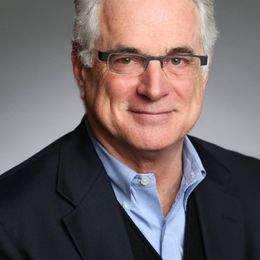Congress May Soon Help Prevent Medicare Enrollment Mistakes
750,000 people paid a late enrollment penalty in 2014
Applying for Medicare shouldn’t be complicated. So why did 750,000 Medicare beneficiaries get socked with a Medicare Part B late-enrollment penalty in 2014, according to the Congressional Research Service? A penalty which, incidentally, amounted to nearly a 30 percent increase in their monthly premium, on average. Ouch.

For the answer, you could ask my older brother, Tony.
A Letter From My Brother
Last year I got an email from him, looking for help. When Tony left his job as a marketing director at 65, he stayed on his ex-employer’s health plan through COBRA, which lasts 18 months. When that ran out, Tony went to sign up for Medicare Part B — the part covering doctor and outpatient expenses. That’s when he learned to his chagrin that not only had he missed the window for enrolling, but the rules required him to wait nearly a year before he could join.
The prospect of going nearly a year without Part B was sobering. Tony, who’s now 68, also learned that he would owe the permanent 10 percent penalty for enrolling late. The penalty is 10 percent of your premium for each year you delay enrolling; the monthly Part B premium is $134 this year. (Tony eventually found HMO coverage until Medicare Part B kicked in.)
“It's funny,” he wrote. “The government will penalize me for being uninsured, but the government itself won't let me in!”
When I relayed Tony’s story to Laurence Kotlikoff, a Boston University finance professor who’s a Medicare authority, he dryly remarked: “This is capricious. It’s nuts.”
Widespread Confusion Over Medicare Enrollment
My brother is far from alone. Confusion about the Medicare enrollment rules is widespread. It’s the reason a bipartisan group of legislators are pushing a bill in Congress — the Beneficiary Enrollment Notification and Eligibility Simplification (BENES) Act — to prevent Medicare mishaps and painful penalties.
One reason so many Americans are getting socked with Medicare late enrollment penalties due to enrollment errors is because so many are working more years than previous generations.
Here’s the connection: When you file for Social Security, you’re automatically enrolled in Medicare Part A (for hospital stays) and Part B. However, between 1995 and 2016, the share of adults ages 65 to 69 in the labor force rose from 28 to 38 percent for men and from 18 to 30 percent for women. Many older workers smartly delay filing for Social Security to boost their eventual monthly retirement benefit, but this means they must then take active steps to enroll in Medicare when it can kick in, at 65.
“In many cases, Medicare doesn’t tell you what you need to know to make an informed decision,” says Philip Moeller, author of Get What’s Yours for Medicare. “The mantra is: ‘No one ever told me.’”
When COBRA Is Dangerous
Here’s one way some people get penalized for late enrollment: Generally speaking, you don’t need to sign up for Medicare Part B if you’re still covered by your employer’s insurance. When you stop working, you have eight months to enroll in Part B without penalty. That said, Medicare doesn’t consider someone like my brother — who stays on a former employer’s plan through COBRA —as being on the employer’s plan anymore. Confusing, no?
What’s more, if you are over 65 and work at a firm with fewer than 20 employees, your employer may require you to sign up for Medicare Part B. That’s because federal law allows Medicare to pay any health bills first for such small companies, with the employer as secondary.
Oddly, under current law, Medicare doesn’t notify people nearing Medicare eligibility age whether they need to enroll or if they can delay their coverage, let alone the rules about enrollment periods and premium penalties.
What the BENES Act Would Do
Many of these problems would be solved if Congress passes the BENES Act (no, it’s not named after Seinfeld’s Elaine, though the Medicare rules are as quirky as she was).
The bill, developed by the Medicare Rights Center (a private group that gives individuals advice about Medicare), is sponsored by Congressmen Raul Ruiz, M.D. (D-Calif.) and Patrick Meehan (R-Pa.) and Senators Bob Casey (D-Pa.) and Todd Young (R-Ind.). It would require the US. Department of Health and Human Services, the Social Security Administration and the Internal Revenue Service to collaborate on telling people approaching eligibility about the Medicare enrollment process and how Medicare works with other insurance. The BENES Act would also eliminate some common sign-up coverage gaps and make it easier to request relief from Part B premium penalties.
The legislation — which has been sitting in Congress for two years — is a classic example of how a relatively small set of changes can help people out, especially for the growing ranks of workers who are delaying filing for Social Security.
Make Medicare First Payer for Everyone Over 65?
If legislators pass the BENES Act (fingers crossed), they might want to consider next taking a somewhat bolder, but hardly radical, step: Make Medicare automatically the first payer for everyone over age 65. In other words, at age 65 everyone goes on Medicare. That’s a proposal of Stanford University economist John Shoven and others.
The shift toward putting everyone on Medicare at 65 would greatly simplify the process for older employees. It would also encourage employers to keep, and hire, people 65 and older. That’s because employers would be largely relieved of the comparatively high average cost health coverage for older workers.
“In addition, increased personal income tax revenues would likely offset the additional cost of providing Medicare benefits to the working population that is currently covered primarily by private health insurance from their employers,” wrote scholars Gopi Shah Goda, John Shoven and Sita Nataraj Slavov in A Tax on Work for the Elderly: Medicare as a Secondary Payer.
“Keep it simple” is a well-known catchphrase in personal finance. The same holds with public policy. The movement toward older Americans working longer and actively contributing to the economy is a heartening development. Policymakers should embrace ideas that adjust Medicare to the new reality.


